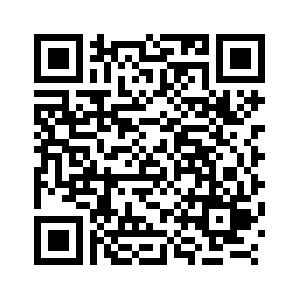TEHRAN, June 17 (Xinhua) -- Iranian Foreign Ministry Spokesman Nasser Kanaani on Monday condemned a recent statement by France, Britain and Germany on the country's nuclear program as "absurd and invalid."
His remarks were in response to a statement released by the E3 group on Saturday, which "condemned Iran's latest steps, as reported by the International Atomic Energy Agency (IAEA), to further expand its nuclear program," according to a statement published on the website of the Iranian Foreign Ministry on Monday.
Kanaani refuted the E3's claims as "untrue" and reiterated that Iran's nuclear program had a "completely peaceful nature" and "nuclear weapons have no place in the country's military and defense doctrine."
He noted that it was a "bitter irony" that those countries who had adopted a "political and unconstructive" approach and were among the main parties responsible for the current situation regarding the implementation of a 2015 nuclear deal between Tehran and world powers accused Iran of "hollowing out" the agreement, formally known as the Joint Comprehensive Plan of Action (JCPOA).
Kanaani reaffirmed Iran's commitment to continuing its "constructive" interaction and technical cooperation with the IAEA, adding the country would continue its "peaceful nuclear activities" in accordance with the country's national plan for the development of its nuclear industry and within the framework of its international rights and obligations.
In their statement on Saturday, the governments of France, Germany and Britain claimed that "Iran has taken further steps in hollowing out the JCPOA by operating dozens of additional advanced centrifuges at the Natanz enrichment site as well as announcing it will install thousands more centrifuges at both its Fordow and Natanz sites."
They said those steps "will further increase Iran's enriched uranium stockpile and enrichment capacity, which already significantly exceed JCPOA limits."
The E3 stressed that presenting such steps as a "reaction to the IAEA Board of Governors' adoption of a resolution (on June 5) calling for Iran's long overdue cooperation on safeguards is not acceptable."
Iran signed the JCPOA with world powers, including the United States and the E3, in July 2015, accepting restrictions on its nuclear program in exchange for the lifting of sanctions.
However, the United States withdrew from the agreement in May 2018, reinstating sanctions and prompting Iran to scale back some of its nuclear commitments.
Efforts to revive the JCPOA commenced in April 2021 in Vienna, Austria, but despite multiple rounds of negotiations, no substantial progress has been reported since the last talks in August 2022. ■



